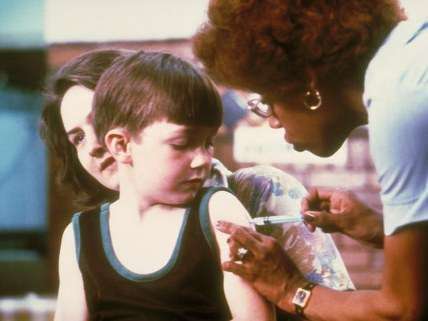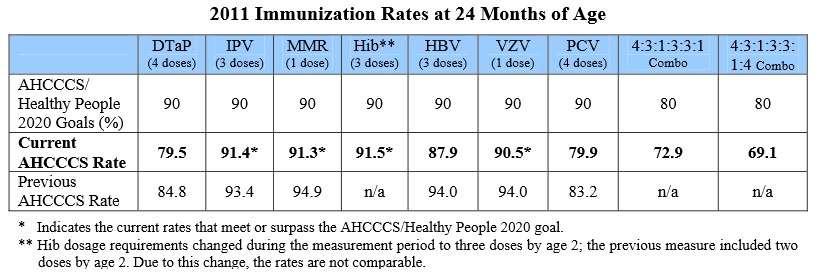Keep Vaccine Choice—So Long as Families Pay Their Own Way
Requiring that people vaccinate their kids if they want taxpayers paying their bills boosts immunization without making the treatment worse than the disease.

A friend of mine who worked in pediatric private practice in the Washington, D.C. suburbs had a strict policy on vaccination: If you didn't vaccinate your children, you had to find another practice. He would try to persuade, he would give several warnings, but ultimately, those who didn't vaccinate had to find another provider.
My wife's policy is very different. As a rural pediatrician in an area with a large population skeptical of vaccines (and of anything that's happened since the Scientific Revolution, so far as I can tell), she knows that families have few alternatives and might just stop taking their kids to the doctor if turned away. The local culture, salted with New Age/alternative-everything types, requires her to compromise. So she persuades, details the gruesome realities of diseases against which vaccines protect, shifts vaccination schedules, and ultimately works with people who believe things that my wife knows to be…uh…contrary to the evidence.
But she does start steaming when those same patients go to the front desk to pay their tab with AHCCCS, Arizona's implementation of Medicaid. That coverage guarantees that any preventable diseases and their health consequences that could likely have been headed off by a few shots will be treated courtesy of the taxpayers.
"If they get meningitis and go deaf because they weren't vaccinated," she fumes, "the treatment for that comes out of public money. If you're going to take money from taxpayers, then follow standards of care."
AHCCCS produces an occasional report on "Immunization Completion Rates by 24 months of Age." The 2012 edition noted an across the board decline in immunizations among patients served by the program. It's not just Arizona, though. The report points to "A national decrease in the number of children being fully immunized; from a high of 84 percent in 2004 to a low of 73 percent in 2009. A rate that low was last reported in the early 1990s."

It is a national issue. Drawing off of recent Centers for Disease Control figures, CBS reports that "the immunization rate for the measles-mumps-rubella vaccine dropped from 92 percent in 2008 to 90 percent…The rate of children being vaccinated against whooping cough also declined slightly."
Seriously, folks. The Scientific Revolution was a good thing. The crazy—it burns (and blinds, and cripples,and kills).
Much of the public debate now is over making vaccination mandatory across the board, without much discussion of what that means. Are we talking about denying unvaccinated kids access to public schools? Or are we going to send SWAT to work its D-Day magic and drag the kids off for shots and a foster home?
Because there is a difference. A forceful approach involving flash-bang grenades may not necessarily make the world a better, healthier place in which to live.
I think my wife's approach makes the most sense. If you want the taxpayers to pick up the tab, you follow standards of care. Access to public services like government schools (where other tots might be exposed to your unvaccinated darlings) could work the same way (this is generally the rule now, though many states allow a variety of exemptions on non-medical grounds). Update: I'm a big school choice advocate, as regular readers know, and homeschool my own kid. I would prefer to see state dominance of education end, with families choosing the environments that work for them.
And if you want to pay your own way, educate your kids among like-minded people, and make your own choices, good for you. Stay over there, please. A little farther, if you don't mind.
Reason's Ron Bailey suggests noncoercive "shaming and shunning," too.
That approach won't make everybody happy. Some people will complain that they're denied public services to which they're "entitled." Others will complain that you can't get universal vaccination and herd immunity without a touch of the lash.
But simply requiring that people vaccinate their kids if they want taxpayers paying their bills should boost immunization rates without making the treatment worse than the disease.
Note: I don't endorse Medicaid as a wise policy. I take its current existence as a given, for the moment, and suggest the access it provides to taxpayer funds should be conditional.


Show Comments (259)